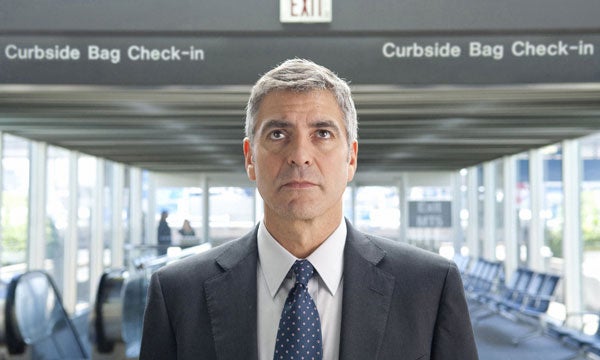Up in the air: Why frequent flyers are losing out
George Clooney may covet frequent-flyer miles in his latest film, but what do these schemes really offer?

"There's nothing cheap about loyalty," insists Ryan Bingham, the high-flying character played by George Clooney in Up In The Air, released on Friday. Anyone seeking to cash in their frequent-flyer points for a long-haul flight may well agree, given the high costs of a "free" flight.
The frequent-flyer concept is intellectually enticing. On a typical flight one out of four seats is empty, so passengers who elect to stay loyal to a particular carrier, or airline alliance, can earn free seats on future flights that would otherwise go unsold.
That appealing theory led American Airlines to unveil the idea in 1981. Competitors immediately copied the concept. British Airways came to the party with its "Air Miles" scheme. The term has since gained currency as the generic name for any frequent-flyer programme, even though BA soon changed the offer so that it was no longer an airline passenger loyalty scheme but a retail reward programme (a good one, too, with genuinely free flights). Frequent flyers on BA who join its Executive Club qualify for BA Miles.
An estimated 14 trillion frequent-flyer miles are in circulation. But research by the Independent Traveller shows that their value has become debased.
First, earning miles is getting tougher for the majority of passengers: anyone travelling on a discounted ticket gets only a fraction of the actual distance travelled. Second, redeeming points attracts such high "taxes, fees and charges" that schemes can look almost worthless.
We looked at frequent-flyer programmes from Europe's three leading airlines: Air France, Lufthansa and BA, who also represent the world's three major airline alliances: SkyTeam, Star and Oneworld. The Manchester-Hong Kong route provides good comparison because there are no longer direct flights between the two cities: you must change planes at Paris Charles de Gaulle, Heathrow or Frankfurt, flying around 6,000 miles.
So how many round trips between Manchester and Hong Kong, at a discount fare, would you need to make to earn enough miles for a "free" flight on the same route? For Air France and BA, the answer is 26, because each airline awards only one-quarter of the actual miles flown, and sets the points level at 80,000 for a "free" flight. Lufthansa's Miles&More scheme is more than twice as generous, awarding points worth half the distance flown, and "charging" only 77,000 miles if you book online. But even after flying back and forth 11 times, you need a lot of Miles&Money before you can take off: £340 for "taxes, fees and charges".
We then looked at fares on the open market through Opodo.co.uk. A flight one month from now, returning a fortnight later, costs £617 return on Lufthansa. So surely your 77,000 miles are at least saving you nearly £300? Not if you fly on a different airline. Finnair, easily the quickest link between Manchester and Hong Kong with a stop in Helsinki, costs £356 return, only £36 more than the extras demanded by Lufthansa.
The German airline allows travellers to add an extra 15,000 miles to cover the taxes, fees and charges, which would be a smart move: you could earn a completely free trip from only 13 return flights.
Air France demands £320 before you can claim your "free" trip via Paris. That means each of those 26 round-trips you took to earn the 80,000 miles is worth approximately £1.30 in the benefit it earns compared with the Finnair flight: just five pence for every 12,000-mile round trip. British Airways is more generous, with an assessment of only £270. But passengers from northern England may still prefer to pay an extra £86 for a faster and less stressful journey via Helsinki.
So do frequent-flyer schemes have any merit? Yes, but usually on routes where fares are disproportionately high because of an absence of competition.
I last used BA Miles to fly to Bermuda (the same distance as New York, but with fares twice as high), and Luxembourg, which has no low-fare options.
No-frills airlines are often sniffy about frequent-flyer schemes. The world's largest budget carrier, Southwest Airlines, has a simple "fly eight round trips and the ninth is free" plan. But easyJet and Ryanair have steered clear of the concept. The one exception was in 1996, when easyJet offered passengers on its new Aberdeen-Luton route a bottle of whisky if they paid the full £69 fare. (This was before the liquids ban.)
Those who claimed the award were disappointed to find that their reward was, in fact, only half a bottle of Scotch. Yet another frequent-flyer swizz.
Research by Claire Cooper
Subscribe to Independent Premium to bookmark this article
Want to bookmark your favourite articles and stories to read or reference later? Start your Independent Premium subscription today.

Join our commenting forum
Join thought-provoking conversations, follow other Independent readers and see their replies